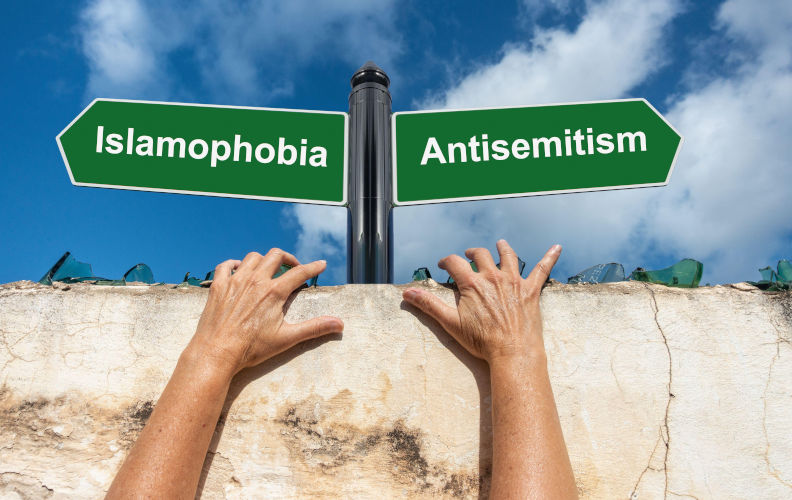Perceptions of Islamophobia and antisemitism: The Australian perspective reflecting global trends
September 22, 2025
After 7 October 2023, debates about antisemitism and Islamophobia in Australia intensified.
As violence erupted between Hamas and Israel, hate crimes and hostile language increased – not only in the Middle East but also in cities like Sydney, Paris and New York. Suddenly, long-standing issues became headline news, prompting political responses. However, behind the talk of unity and harmony, a more complex reality exists – one where political interests, media narratives, and strategic language all shape how these forms of bigotry are understood and addressed.
Australia’s struggle with Islamophobia and antisemitism mirrors global trends. Surveys show rising negative sentiment toward both Muslims and Jews, but political disputes have stalled national laws against religious discrimination, leaving vulnerable communities exposed. Australia appointed “special envoys” to combat antisemitism and Islamophobia. On the surface, these roles look like genuine commitments to inclusivity and safety. But a closer look reveals differences in how these problems are tackled by policymakers and the media.
Jillian Segal’s appointment as Special Envoy to Combat Antisemitism was widely welcomed by political leaders and pro-Israel groups, but criticised by Jewish voices opposed to Israeli policy in Gaza and those concerned about conflating anti-Zionism (critique of Israel’s Government or ideology) with antisemitism (hostility toward Jews). Segal’s influence helped shape a government plan that, critics argue, aims more to silence dissent against Israel than to protect Jewish Australians from hate. Her report, built on the International Holocaust Remembrance Alliance definition of antisemitism, was broadly adopted despite concerns from academics and free speech advocates that it conflates criticism of Israel with racism.
This isn’t just an academic debate. The plan lacks clear performance measures and threatens punitive action against universities, which groups like the Jewish Council of Australia and Jews for Palestine Western Australia have called authoritarian. Meanwhile, Segal and her husband’s financial ties to far-right lobby groups and business interests connected to Israel have raised conflict-of-interest questions that mainstream media have been slow to explore.
The approach to Islamophobia has been less firm. Attacks on Muslims also increased after 7 October, but the Australian Government’s response was subdued, and the debate more muddled. The appointment of Aftab Malik as Special Envoy to Combat Islamophobia received little media attention, and many Australian Muslims felt pushed aside. Malik’s delayed report, “ A National Response to Islamophobia,” which came out last Friday afternoon, was described by some Muslim academics as a “ landmark”. It was not; it has missed the mark. But Malik deserves some credit. The report proposes more than 54 actionable recommendations aimed at fostering inclusion, protecting rights and promoting dignity – emphasising the need for co-ordinated government action, community engagement and ethical leadership to combat anti-Muslim hate and build a more just and inclusive society. The report also reiterates some “glossy images” of what other Islamophobia observatories, including academics, have disseminated for the past few years, such as those by the Islamophobia Register Australia.
More fundamentally, and in the global context, Islamophobia is often seen as a matter of individual prejudice, not a systemic injustice needing urgent policy action. The term itself is debated, and efforts to define and legislate against it are bogged down by arguments about “freedom of expression” – a concern rarely raised with antisemitism. Media coverage often frames anti-Muslim sentiment as a national security issue or as part of the fight against “Islamist extremism”, rather than recognising it as a genuine social problem.
This double standard is not unique to Australia. In the US, UK and France, antisemitism is condemned quickly and clearly, often with references to the Holocaust. Laws and policies are enacted swiftly, even at the expense of open debate around Israel. Islamophobia, meanwhile, is treated as a complex, ongoing social issue – serious, but always up for debate. Jewish communities receive concrete protections, while Muslim communities are left with promises and committees.
The media’s role in all this is huge. Outlets owned by powerful interests — such as Australia’s Murdoch media — amplify government talking points and repeat lobby-driven definitions, blurring distinctions between anti-Zionism and antisemitism and feeding fear of Muslim “others”. When advocacy groups or universities challenge these narratives, they are dismissed as fringe or accused of undermining social harmony. The result is a climate where criticism of Israel is delegitimised, while anti-Muslim sentiment is normalised or ignored.
Yet, there are signs of resistance. Legal cases, like the recent Wertheim and Haddad trial in Australia, show that courts can distinguish hate speech from legitimate criticism. Grassroots Jewish and Muslim groups continue to challenge official narratives, demanding policies that protect all minorities and encourage real inclusion.
Three lessons stand out. First, special envoys are only meaningful if the government is genuinely committed to fighting all forms of hate, not just offering symbolic gestures. Second, as Greens anti-racism spokesperson Mehreen Faruqi argues, Australia may not need envoys, but rather a structural commitment to tackling racism and xenophobia. Third, and most importantly, Muslims alone could reverse the trend of Islamophobia by establishing independent, fully-funded Muslim think-tanks, driven by a powerful lobby group with the purpose of establishing institutions with upstream influence. That is the key to curbing Islamophobia. Genuine power resides in the ability to shape world views, construct enduring narratives and define the rules of engagement, rather than simply responding to existing frameworks. This dynamic helps explain why many Muslim communities today remain ensnared in a persistent cycle of political reaction.
Yet, as Australia and other countries reconsider their positions on issues like Palestinian statehood, honest, independent media scrutiny is urgently needed. Only by exposing the interests and strategies behind the headlines can we hope for policies that deliver real justice – and a fairer society for all.
The views expressed in this article may or may not reflect those of Pearls and Irritations.

